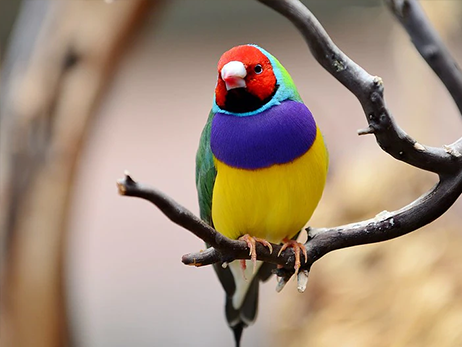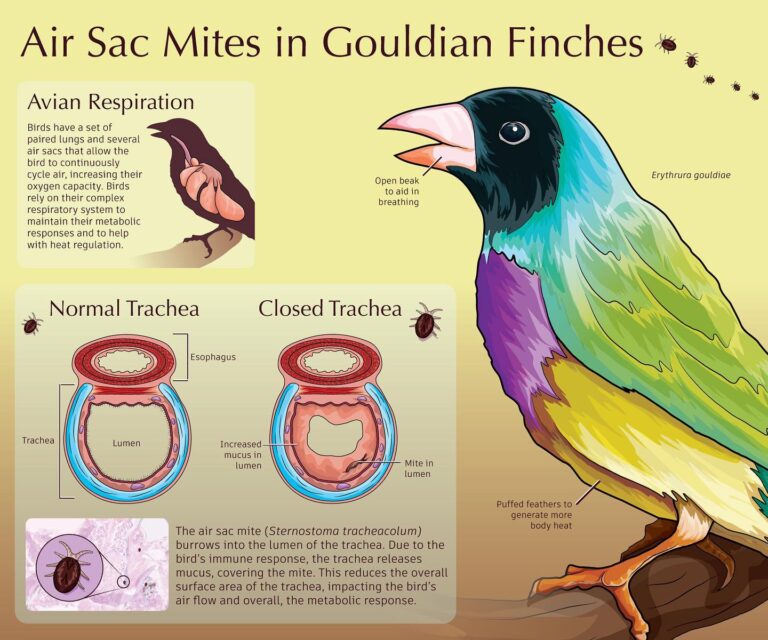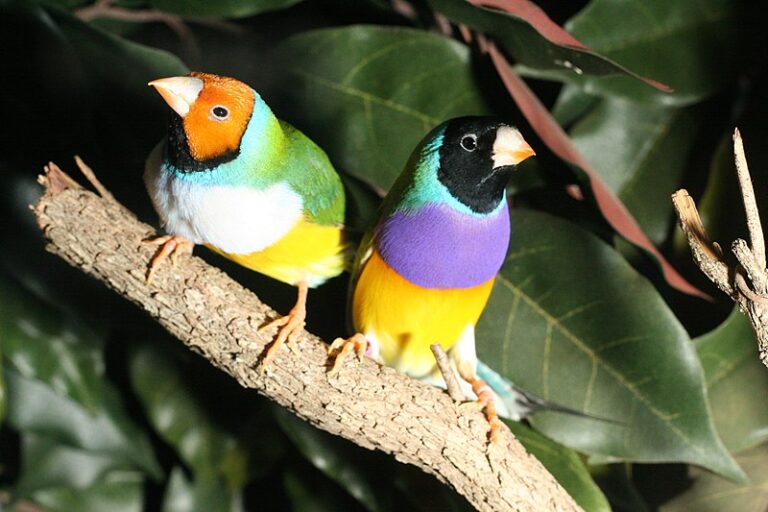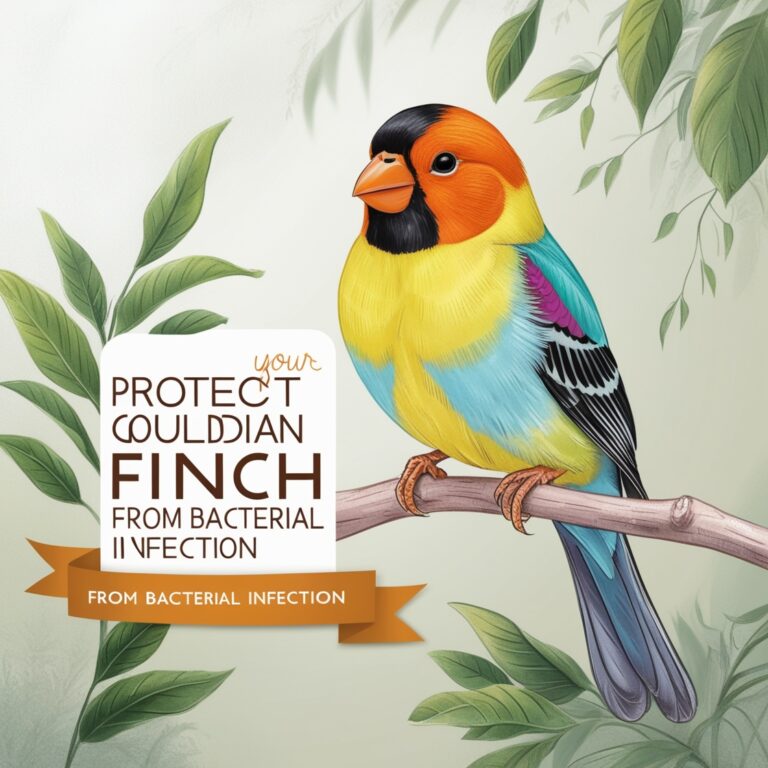Understanding for a Sick Gouldian Finch Symptoms, Treatment, and Prevention
Introduction
Gouldian Finches are charming little birds, often adored for their vibrant colors and cheerful songs. However, like all pets, they can fall ill. As a responsible finch owner, it’s crucial to recognize the signs of illness early and understand how to care for a sick bird to ensure it recovers quickly and fully.
Common Symptoms of a Sick Gouldian Finch
Recognizing when your Gouldian finch is unwell can be challenging, especially since birds often hide their symptoms until the illness is quite advanced. However, there are several key signs to watch out for:
- Fluffed Feathers: If your finch is constantly puffing up its feathers, it might be trying to conserve body heat, indicating that it’s unwell. Healthy birds do this occasionally, but if it’s persistent, there may be a problem.
- Lethargy: A healthy Gouldian finch is usually active and chirpy. If your bird seems unusually quiet, less active, or is sitting in one spot for extended periods, it could be sick.
- Loss of Appetite: A sudden decrease in appetite or a refusal to eat is a significant red flag. Birds have high metabolisms, so even a short period without food can be serious.
- Respiratory Issues: Watch for signs like heavy breathing, tail bobbing with each breath, or wheezing noises. These could indicate respiratory infections, which are common in finches.
- Discharge from Eyes or Beak: Any unusual discharge from your finch’s eyes, nose, or beak could be a sign of infection or another health issue.
- Weight Loss: Regularly monitor your bird’s weight. If you notice a decrease, even if your bird is eating, it might not be absorbing nutrients properly, possibly due to an underlying illness.
- Diarrhea or Unusual Droppings: Changes in the color, consistency, or frequency of your bird’s droppings can indicate digestive problems. Keep an eye out for watery droppings or those with a strong odor.

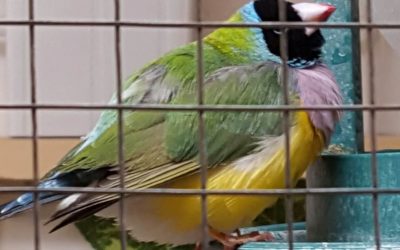
Treatment for a Sick Gouldian Finch
Once you’ve identified that your Gouldian finch is sick, the next step is to provide appropriate care. Here’s what you can do:
- Isolate the Sick Bird: If you have multiple finches, it’s crucial to separate the sick bird from the others to prevent the spread of illness. Place it in a warm, quiet environment to reduce stress.
- Consult a Veterinarian: Always consult a vet who specializes in birds when your Gouldian finch shows signs of illness. A professional can diagnose the problem accurately and suggest the best course of treatment. Don’t try to medicate your bird without veterinary guidance, as some treatments can be harmful.
- Provide a Warm Environment: Sick birds often struggle to maintain their body temperature. Use a heat lamp or heating pad to keep your Gouldian finch warm, but ensure the bird can move away from the heat if it becomes too warm.
- Hydration and Nutrition: Encourage your Gouldian finch to drink water, and consider offering electrolyte solutions designed for birds. You may need to hand-feed your bird with a syringe or offer softer foods that are easier to digest.
- Administering Medication: If prescribed by your vet, administer medication as directed. This may include antibiotics, antifungals, or antiparasitics, depending on the diagnosis. Be sure to complete the entire course of treatment, even if your bird seems to be improving.
- Monitor Your Bird Closely: During the recovery period, keep a close eye on your Gouldian finch. Watch for any signs of improvement or worsening symptoms. Regularly check its weight, eating habits, and activity levels.
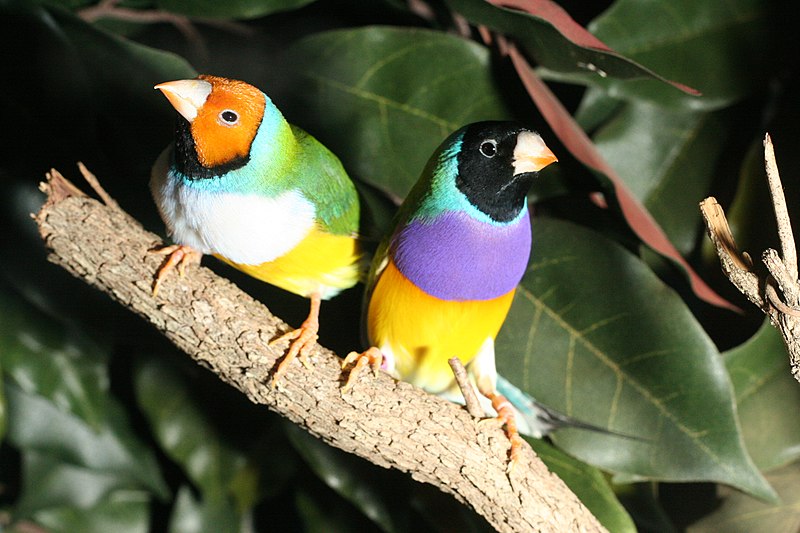
Preventing Illness in Gouldian Finches
Prevention is always better than cure, and there are several steps you can take to keep your finch healthy:
- Maintain a Clean Environment: Regularly clean your Gouldian finch’s cage, food, and water dishes to prevent the build-up of bacteria and mold. Ensure the cage is in a well-ventilated area, free from drafts.
- Provide a Balanced Diet: A healthy diet is crucial for preventing illness. Offer a variety of seeds, fresh fruits, vegetables, and supplements as recommended by your vet. Avoid feeding your bird processed or fatty foods.
- Regular Vet Check-ups: Take your finch for regular check-ups, even if it appears healthy. A vet can often spot potential issues before they become serious.
- Quarantine New Birds: If you introduce a new bird to your home, quarantine it for at least 30 days to ensure it’s healthy and won’t spread disease to your existing birds.
- Monitor Your Bird Daily: Get to know your bird’s normal behavior and habits. This will make it easier to spot when something is off, allowing you to act quickly.
Conclusion
Caring for a sick Gouldian finch can be a delicate process, but with careful attention and the right knowledge, you can help your feathered friend recover. Recognizing symptoms early, seeking veterinary care, and providing a nurturing environment are key steps in ensuring your bird’s health. By also focusing on prevention, you can minimize the chances of illness, helping your finch live a long, healthy life.
FAQs
1. How can I tell if my Gouldian finch is sick?
Look for signs such as fluffed feathers, lethargy, loss of appetite, respiratory issues, and changes in droppings.
2. Can I treat my Gouldian finch at home?
While you can provide supportive care at home, always consult a veterinarian for proper diagnosis and treatment.
3. How often should I clean my Gouldian finch’s cage?
Clean the cage at least once a week, and food and water dishes should be cleaned daily to prevent illness.
4. What should I feed a sick Gouldian finch?
Offer easily digestible foods like soft fruits and consider hand-feeding if necessary. Ensure your bird stays hydrated.
5. How can I prevent my Gouldian finch from getting sick?
Maintain a clean environment, provide a balanced diet, ensure regular vet check-ups, and quarantine new birds before introducing them to others.
